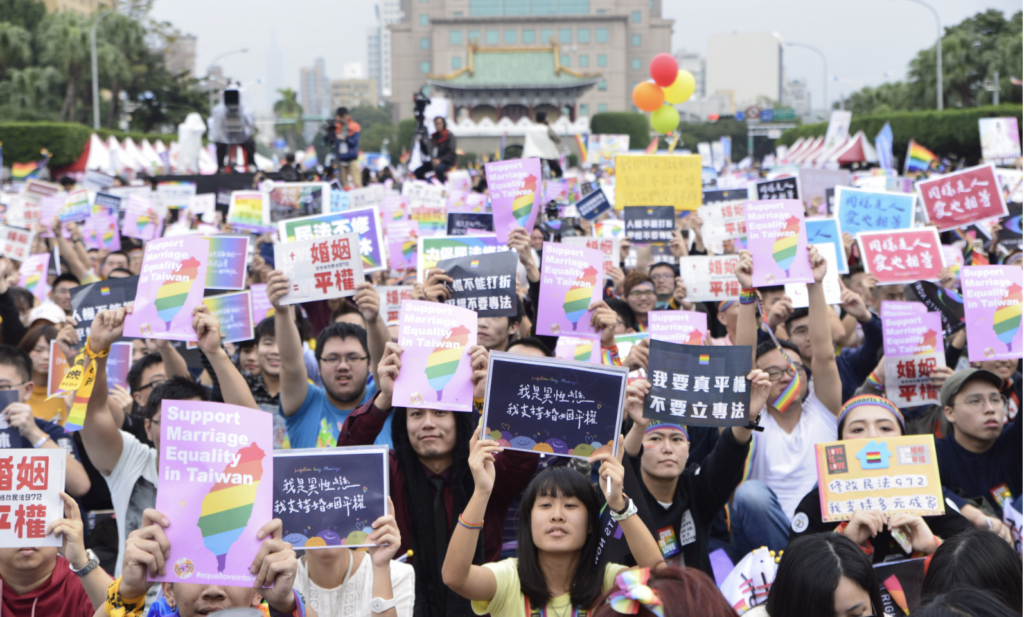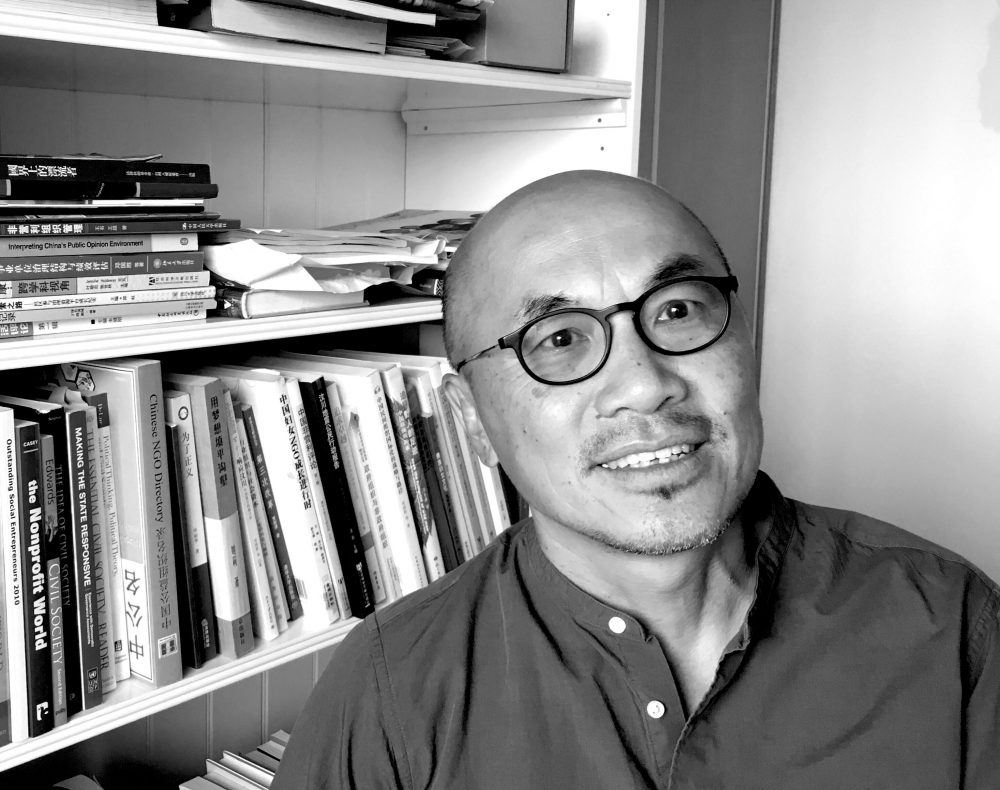The Freshwater Institute, a new hub for human rights activists based in Taiwan, recently launched a Human Rights Accelerator program in partnership with Rights CoLab. We caught up with Freshwater co-founder Shih-hung (Shawn) Shieh to learn more.
Rights CoLab: Tell us about the Accelerator. What is it designed to do?
Shawn: The Accelerator is designed to help East Asian civil society organizations develop business ideas into workable prototypes. The underlying idea is to foster a more robust human rights sector in East Asia by empowering CSOs to build diverse funding streams beyond traditional grants.
We knew that one-off workshops such as our Civil Society Innovation Lab last May were only a first step and that a more sustained program was needed if we were going to see results. The Accelerator Program gives civil society leaders the time and support they need to build out their business ideas.
Rights CoLab: As part of the Accelerator, you and Rights CoLab co-founder Ed Rekosh will be meeting with the Fellows for one-on-one coaching. How have your first meetings been? What did you discuss?
Shawn: It’s been great so far. My first meeting was with the Judicial Reform Foundation which works on expanding access to justice in Taiwan. They want to start a project to allow victims of injustices to tell their stories and express themselves through photography, art, music and other creative endeavors. Their first piece is a documentary made by one of their supporters whose father was wrongfully imprisoned. They hope to use these creative works to raise awareness among ordinary citizens and encourage them to support JRF’s work through small donations.
The second meeting was with Taiwan Equality Campaign, a LGBTQI group which started a voter platform called PrideWatch to help voters understand the positions of candidates in Taiwan’s local and national elections. TEC hopes to use this platform to expand their followers and donors.

Rights CoLab: What are you most excited to see with this program? What challenges do you forsee?
Shawn: I’m excited about the amount of interest in the program, the diversity of CSOs that applied, and the business ideas they proposed. There were 20 participants in our CSI Lab back in May, and 10 of them are continuing in the Accelerator. They represent a fascinating diversity of human rights goals: preserving the pro-democracy movement in Hong Kong; LGBT and gender rights; labor rights; accountability of the judicial system and local legislatures; and strengthening civic space.
There of course will be challenges. These CSOs come from a wide range of backgrounds, some better resourced than others, and some further along than others in the process of developing prototypes. Some CSOs do not yet have a clearly defined business idea, others have more complicated ideas that will be challenging to prototype, while others are already in the prototype stage. We will try our best to customize our support to their different needs.
Rights CoLab: What comes next?
Shawn: A couple things. We’ll be holding a Prototyping Workshop on November 2 to introduce the prototyping process to the Fellows. Over the next eight months, Fellows will be developing their prototypes with help from me and Ed and presenting them to other civil society groups and experts from the social impact and business community in Taiwan for feedback. By next May, we expect that each Fellow will have developed a compelling and feasible prototype that they will present in a Pitching Forum. The winner(s) will receive a cash prize to support the further development of their business idea.
Watch this space for further interviews with the 2023-2024 Freshwater Fellows. If you want to learn more, contact us at info @ rightscolab.org
什麼是人權加速器計劃?專訪思流學院共同創辦人謝世宏
思流學院是一個位於臺灣、新成立的人權倡議者聚集中心,最近與 Rights CoLab 合作推出人權加速器計劃,我們訪問了思流學院共同創辦人謝世宏以瞭解更多資訊。
Rights CoLab:可不可以和我們談談這個加速器計劃的設計目的為何?
謝世宏:人權加速器計劃希望能幫助東亞公民社會組織,將其商業構想發展成可行的商業原型,核心理念是培養公民社會組織開發傳統補助金以外、多元的資金來源,進而壯大東亞的人權領域。
去年五月,我們舉辦了公民社會創新實驗室,這樣一次性的研討會只是第一步,如果我們想要看到結果,需要一個更持久的計劃,人權加速器計劃能為公民社會領袖提供發展商業想法所需的時間和支持。
Rights CoLab:加速器計劃的其中一個部分是,你和 Rights CoLab共同創辦人 Ed Rekosh 將與參與者進行一對一輔導。第一次會議進行得如何?你們討論了什麼?
謝世宏:目前為止一切都很順利,我第一次會議輔導的對象是司法改革基金會,他們致力於擴大台灣司法正義。他們希望能發展一個計劃,讓冤獄受害者透過攝影、藝術、音樂和其他創作方式,講述自己的故事並表達自己的心情。他們推出的第一部作品是由一位父親身陷冤獄的支持者拍攝的紀錄片,希望透過這些創作提高公民的意識,鼓勵他們透過小額捐款支持司法改革基金會的工作。
第二次會議是輔導彩虹平權大平台,這是一個LGBTQI組織,他們開發了一個名為PrideWatch的選民投票指南,幫助選民了解台灣地方和國家選舉候選人的立場,希望藉此擴大他們的支持者和捐款人數。
Rights CoLab:你最期待從這個計劃中看見什麼?你能想像會遇到什麼挑戰嗎?
謝世宏:我很開心看見很多人對這個計劃有興趣,我也很興奮看見申請者的多元性和他們提出的商業構想。去年五月,我們的公民社會創新實驗室有20名參與者,其中10名參與者留下來參加人權加速器計劃。他們提出一系列值得關注的人權議題:保護香港的民主運動、LGBT和性別平權、勞工權利、司法制度和地方立法機構的問責,以及公民空間的強化。
過程中當然也會遇到挑戰,這些公民社會組織來自不同的背景,有些資源比較豐富,有些資源相對稀少,有些在開發原型過程中進度超前,有些則還沒有明確的商業想法,有些提出難以進行原型開發、較為複雜的想法,有些則已經進入原型測試階段了,我們將盡力根據他們不同的需求提供輔導。
Rights CoLab:接下來還有什麼計劃嗎?
謝世宏:接下來還會有幾個活動,我們將於11月2日舉辦商業原型設計工作坊,向加速器參與者介紹原型設計的過程。在往後八個月,參與者將在我和Ed的幫助下開發他們的商業原型,並向台灣其他公民社會團體、社會影響力及商業領域的專家展示他們的商業原型以獲得回饋意見。我們希望每一組參與者都能開發出引人入勝且可行的商業原型,在明年五月的提案論壇上呈現,提案論壇的獲勝者將會獲得獎金,以支持他們持續發展其商業構想。
敬請期待更多2023-24人權加速器計劃參與者的專訪文章,如果您想瞭解更多,歡迎來信至info@freshwater.tw

